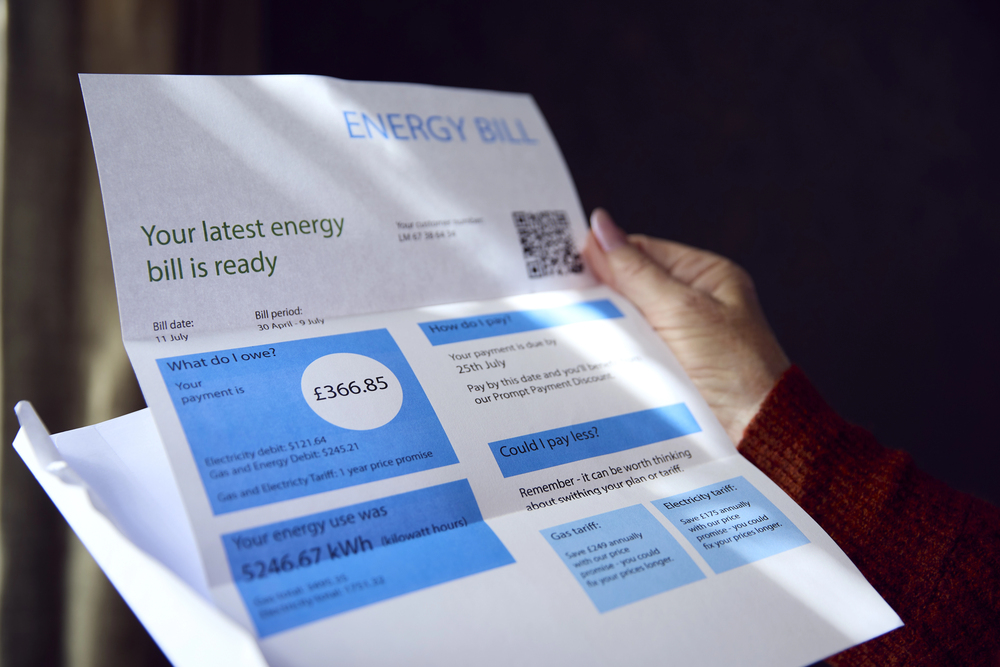Energy price cap 2025: What does this mean for homeowners?

Written by Mehran Charania, Director of Ready Steady Store
As of 1st April 2025, the UK energy price cap increased by 6 per cent, raising the average annual energy bill to £1,849 for a typical UK household. Introduced by Ofgem, the cap limits the maximum amount energy suppliers can charge per unit of energy, but global rises in wholesale gas prices continue to drive costs up.
For many UK homeowners already facing financial pressures, this latest increase in energy costs is only set to add to this. If you’re looking to reduce household costs, managing – and minimising – your energy consumption effectively is a vital first step. While it may seem daunting at first, there are a number of measures you can take to ease the burden.
Make lifestyle changes
Small lifestyle adjustments can significantly reduce your energy use – and your bills. Every action adds up, and it is often the simplest activities that are overlooked when considering energy-saving measures.
Turning lights and other appliances off when they’re not in use, using shorter washing cycles, and switching to LED lightbulbs are easy changes you can make to help combat the effects of the energy price cap increase.
In fact, LED lightbulbs have been found to use up to 90 per cent less energy than incandescent lightbulbs, so taking this step is certainly worth the effort.
Consider downsizing
The size of your property – and how many people live in it – has a big impact on your energy bills. If you’re living in a larger home than you need, downsizing could help you save significantly on heating, electricity and even council tax. Lower mortgages and property tax are also encouraging more homeowners to consider smaller properties in these challenging economic times.
Downsizing is becoming an increasingly popular trend, especially among empty nesters or those seeking to cut living costs. While the thought of downsizing might feel overwhelming, self storage facilities offer a practical solution for keeping hold of valued belongings during the transition. In fact, the UK self storage sector saw an 8.1 per cent rise in the UK between 2023-2024, proving its popularity.
For large items or furniture, long-term storage options can provide peace of mind while you adjust to a new space.
Make the switch to a fixed rate tariff
With ongoing fluctuations in energy prices, switching to a fixed rate tariff could offer more stability and peace of mind. This particular type of tariff locks in your rate per unit of energy for a specific period of time (typically at least 12 months or more) compared to price-capped tariffs which change every three months – helping you budget with confidence.
However, fixed tariffs are a double-edged sword. If market prices drop, you could be stuck paying a higher rate. Weighing up your options is the most sensible plan of action when considering how the energy price cap increase will affect your finances as a homeowner.
Invest in a smart meter
Smart meters are becoming a key tool for energy-conscious households as they automatically track your energy consumption levels and send accurate readings on to the supplier, helping you stay in control and avoid unexpected costs.
Over half of British homes are already using a smart meter, with the Government aiming to offer them to all households in England, Scotland and Wales at no up-front cost over the next few years.
As energy prices rise, keeping a close eye on your usage can help you can identify patterns, make changes, and ultimately reduce your bills.
Final thoughts
With the energy price cap on the rise, homeowners across the UK are understandably concerned about mounting costs. However, by taking the time to consider your habits and expenses with a proactive approach, it’s possible to take back control.
From simple lifestyle tweaks to more significant decisions like downsizing or switching tariffs, making conscious changes to how your household uses energy could make a meaningful difference – both now and in the future.
About the author
Mehran Charania, Director of Ready Steady Store
Established in 2005, Ready Steady Store is one of the fastest growing self storage providers in the UK, with cost-effective storage units located in the Midlands, South, North and East of England.








